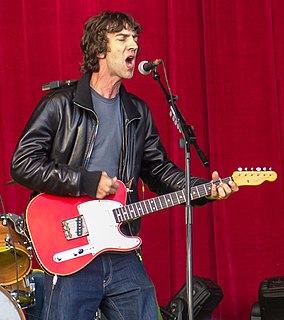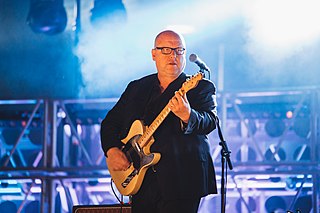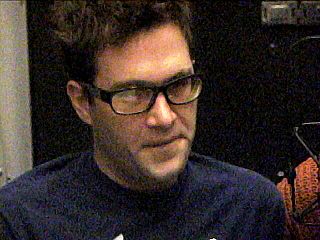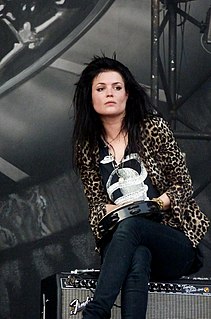A Quote by Richard Ashcroft
We'd lie on the floor, turn the lights out, put two speakers on either side of our ears, and try to blow our minds with music. I know that I want to make a record that does that yet a record that, if it was played on the radio at twelve in the afternoon, the guy making the wall - the guy cleaning the motorway - he's got a melody to hang on.
Related Quotes
Early on, before rock 'n' roll, I listened to big band music - anything that came over the radio - and music played by bands in hotels that our parents could dance to. We had a big radio that looked like a jukebox, with a record player on the top. The radio/record player played 78rpm records. When we moved to that house, there was a record on there, with a red label. It was Bill Monroe, or maybe it was the Stanley Brothers. I'd never heard anything like that before. Ever. And it moved me away from all the conventional music that I was hearing.
The first memory I have was my sisters dancing to the radio when they played records by Benny Goodman and Harry James and of the sort. But the record that got me was a record by Derek Sampson, who was a young guy, called 'Boogie Express,' and it was boogie-woogie. Really, it was on fire, and that got me.
I love the Bach Prelude No. 2 in C Minor and had that stuck in my head: why don't I put this on Imaginaryland? So I brought it to my friend Tom Grimley who recorded That Dog's first record. I played him all my a cappella pieces, and he said, "P, you should really make a record, it would be great! You can record it at my studio and I'll put it out!"
People want to be the first with the record, they want to be the first to know which songs are on the record, all that kind of stuff. So I like to just stall them a bit. Personally, I love the idea of an album that's completely new, that no one's heard any free downloads, any pre-record releases, all that kind of stuff, and nothing's been played on the radio. Totally virgin, you know, a sealed record. That's my ideal, but it's very hard to get anybody else to agree to do that.
I'm the guy who will persist in his path. I'm the guy who will make you laugh. I'm the guy who strives to be open. I'm the guy who's been heartbroken. I'm the guy who has been on his own, and I'm the guy who's felt alone. I'm the guy who holds your hand, and I'm the guy who will stand up and be a man. I'm the guy who tries to make things better. I'm the guy who's the whitest half Cuban ever. I'm the guy who's lost more than he's won. I'm the guy who's turn, but never spun. I'm the guy you couldn't see. I'm that guy, and that guy is me.
I won't necessarily make new music because when you make a record there are these great expectations on the side of the record company who are going to produce your record, promoters that are going to do your shows. They want you to do interviews, they want you to play shows. I mean, they want it to be a campaign.
I try to make music with emotion and integrity. And authenticity. You can feel when something's authentic, and you can feel when it's not: you know when someone's trying to make the club record, or trying to make the girl record, or trying to make the thug record. It's none of that. It's just my emotions.
Despite the fact that Starbucks has grown to be a large company. We've always played music in our stores and has always acted as an opportunity to create a mood in our stores. And customers started asking, "What song are you playing and can I buy that?" . And we said "No." And that was kind of the catalyst for beginning to look at music. We started out with our own compilations and after the success of that. We had the courage to say, "Let's produce our own record." and the first record was with Ray Charles before he unfortunately passed away.
With rap, you go in the studio, you make music, you put the music out, then all of a sudden, you're a star: you have a big record on the radio, and you're on stage, and you've never done it before. Let's say your first show is 'Summer Jam,' and you're in front of 60,000 people, and you've never played an arena, ever. You're gonna suck.


































